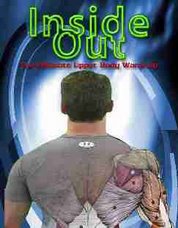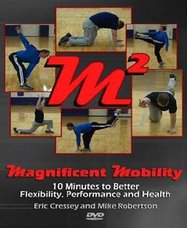After my blog post titled "Operator Error," I got this amazing e-mail from reader Todd Stark. Todd (like myself) obviously has an interest in the psychology of training, and he's allowed me to reproduce his e-mail below. Enjoy!
------------------------------------------------------------------------------------------------ Hi Mike,
Just to stay psychological for a moment, I agree completely with you about locus of control and its importance. There’s also this thing called “cognitive dissonance” that is a huge and pervasive effect on how we explain our own behavior. It has various consequences, but I think one of the big ones for training is that the more we legitimately invest in something, the more we see it as useful -- in order to prevent the uncomfortable inconsistency that failure would represent to our self-image of intelligence, etc..
So if we don’t get the results we expect, we tend to either blame someone else for “tricking” us or blame the program for “not working” in some way that we could not have predicted. It is much harder to reason that we didn’t follow instructions or that we didn’t adapt the program suitably or that we picked the wrong program or wrong level of intensity to use, because these things are more likely to signify that “*I*” made a mistake. It is easy to admit mistakes so long as they aren’t our own, then it becomes very, very difficult to admit them. The more something seems like a mistake on my own part, the less likely I can actually attribute the failure to my own actions, especially if I see myself as intelligent and relatively free of error, as most of us do.
Recognizing and compensating for this is (I suspect) a big part of shifting our locus of control.
If you are interested in this psychological stuff, one of the original researchers into cognitive dissonance and another very good psychologist wrote a recent book about it that’s pretty good, with provocative current examples. Carol Tavris and Elliot Aronson, “Mistakes Were Made (but not by me)”. It probably won’t teach you anything completely new, since you seem to have some background in psych, but it is a great read.
Kind regards,
Todd
------------------------------------------------------------------------------------------------
Stay strong
MR
High Octane Corrective Exercise and Performance Enhancement | www.RobertsonTrainingSystems.com
Subscribe to:
Post Comments (Atom)









No comments:
Post a Comment